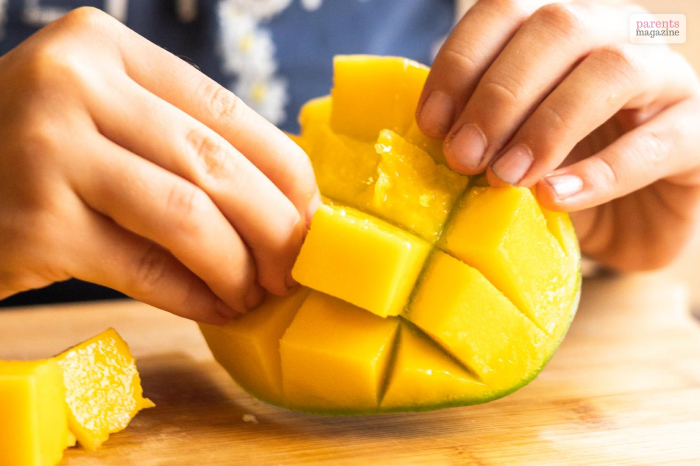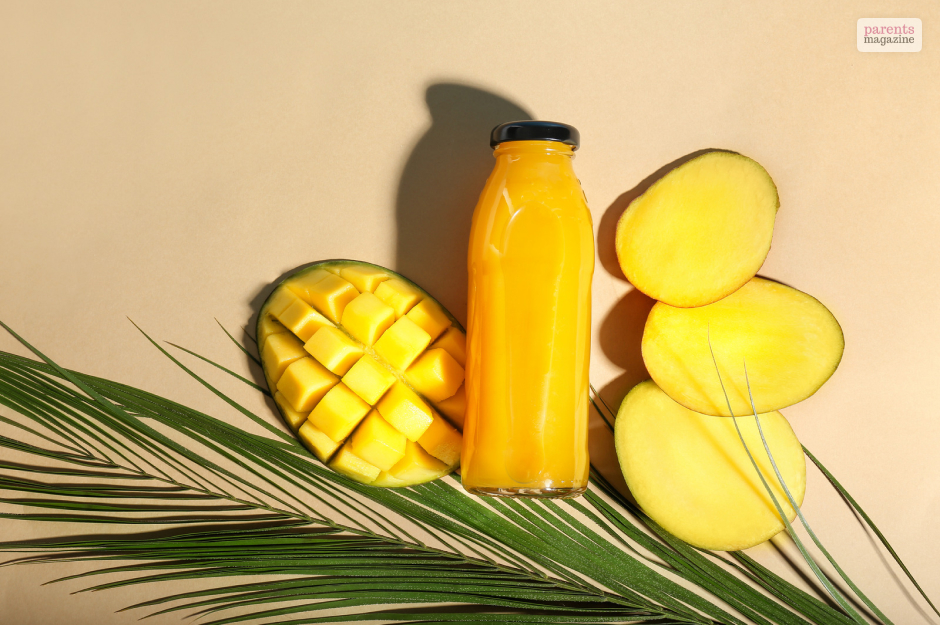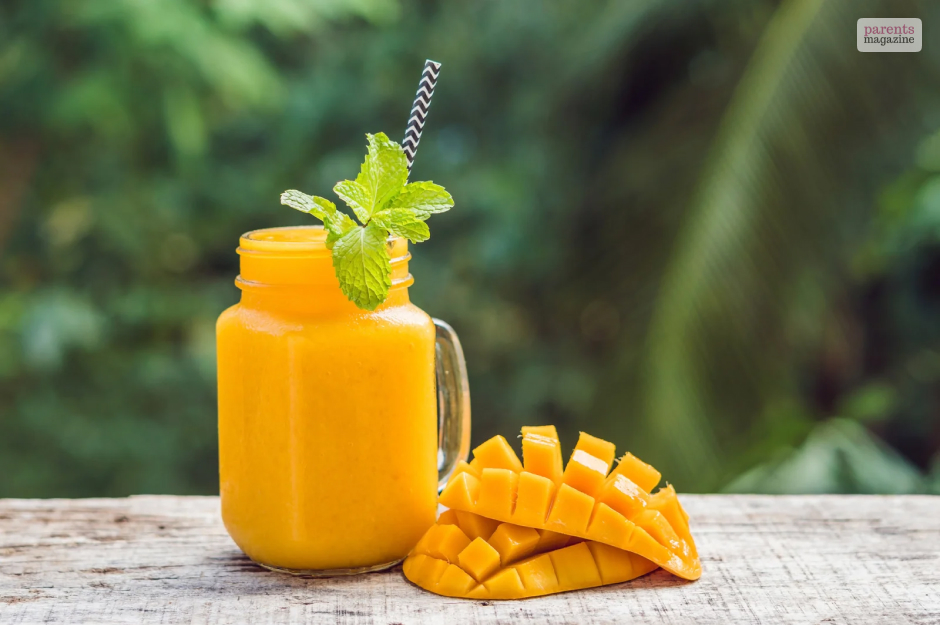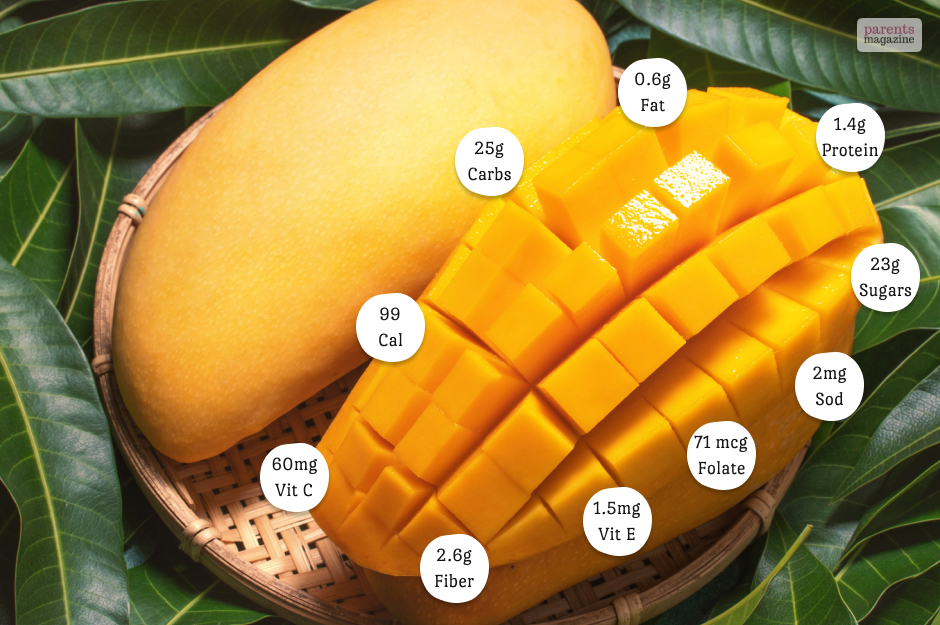
Is Mango Safe in the First Trimester? Essential Tips for Expecting Moms
Mango is a delicious fruit. It’s common to crave something as nutritious and delicious as mango during the first trimester of your pregnancy. But is it safe?
Considering pregnancy is a critical time in your life and the baby’s life, it’s always wise to consider your options – even when cravings like eating mango are on the line.
Needless to say, mango has vitamins A, C, and Vitamin B6. But how much of this food’s consumption benefits your health during pregnancy? Or is it safe at all? Read this blog post for a complete and clear answer.
1. Nutritional Benefits of Mango
Mango is rich in nutrients that help develop the fetus and support the immune system of a pregnant mom. Here are some nutritional values present in mango –
- Calories: 99
- Fat: 0.6g
- Sodium: 2mg
- Carbohydrates: 25g
- Fiber: 2.6g
- Sugars: 23g
- Protein: 1.4g
- Vitamin C: 60mg
- Vitamin E: 1.5mg
- Folate: 71mcg
Vitamins
The vitamin A in mangoes helps with fetal development, especially for developing the baby’s eyes, skin, and immune system.
Gestational anemia is one difficult concern some pregnant women have to deal with, but mango’s high vitamin C content can help fight It.
Fiber Content
The fiber content present in mango provides digestion benefits and relief from constipation during pregnancy.
Hydration
High water content is also another healthy nutritional value present in mangoes.
Eating Mango During Pregnancy First Trimester

Eating mango during pregnancy is highly beneficial. Especially during the first trimester, mango provides essential nutrients necessary for fetal development.
Mangoes have nutrients essential for the fetus’s growth and development. It has iron vitamins A, B, C, and B6. Also, the rich folic acid content of mangoes makes them a great dietary option during pregnancy.
Folic acid present in mango can help with the development of the baby’s nervous system. Eating mango during pregnancy in the first trimester is a good choice.
Benefits of Eating Mango During Pregnancy

From helping with fetal development to keeping a wood-be mom’s body hydrated, mango provides various benefits when eaten during pregnancy.
Here are the key benefits moms would enjoy by eating mango during pregnancy –
1. Rich in Essential Minerals
Mangoes have enough essential minerals like calcium, magnesium, potassium, and more. It helps maintain the balance of fluid during pregnancy. Proper fluid equilibrium plays a critical role in supporting fetal development during pregnancy.
Thanks to mangoes being rich in antioxidants and vitamin C, they fight off free radicals that can harm the body. Vitamin C itself helps with the normal fetal development in the woman’s body and helps promote
In addition, studies confirm that vitamin C consumption can help battle the risk of premature birth.
2. Preventing Anemia
Specific geographical areas in the world, India, for example, have women who suffer from anemia during pregnancy. This happens because of the low level of hemoglobin in the blood. However, the Vitamin C present in mango helps in the high absorption of iron from other food sources.
3. Relieving Morning Sickness
One of the greatest difficulties during pregnancy is morning sickness faced by expectant mothers. But the refreshing taste of mango helps with ailments like morning sickness. It can help soothe their senses with the sweet and refreshing taste it has.
4. Reduced Risk of Preeclampsia
The answer is mango if there were any protective dietary measures against preeclampsia. Eating mango during the first trimester can help reduce the chances of developing preeclampsia. It comes with visible symptoms like high blood pressure and organ damage. Preeclampsia can cause damage to both the mother and the baby.
However, aside from the nutritional values, there’s no scientific proof that mangoes can help with preeclampsia. But it’s a good dietary consideration.
5. Fetal Development
Again, there’s no need to reiterate that mangoes are rich in nutrients. It has Vitamin A, Vitamin C, and Vitamin B6, which are important for fetal development. Also, rich in iron and folic acid, mangoes help develop the nervous system and build the baby’s immunity.
Eating Mango Throughout Trimesters
| First Trimester | Second Trimester | Third Trimester |
| In the first trimester, the various nutrients present in Mango help with the development of the fetus. It has vitamin A, Vitamin C, potassium, and Vitamin B6, which are responsible for the development of the fetus. During this stage, the fetus develops its nervous system, and hence, mango is a necessary item to have in the diet. | During the second trimester, it’s a good option to keep ripe mango in the diet. However, remember to eat only naturally ripened mangoes and clean them well before consumption. In addition, make sure to eat mangoes with minimal exposure to harmful chemicals. Also, peel the skin off before eating. | In the third trimester of pregnancy, you can still enjoy ripe mangoes. But remember to eat them in moderation. This is a critical period of your pregnancy, and it’s important to maintain a balanced diet during this period to maintain your calorie intake. |
Safety of Mango Consumption in the First Trimester

Now that it’s clear that eating mangoes isn’t harmful during pregnancy, you can add them to your diet. However, there are still some general safety guidelines to remember when eating mango during pregnancy’s first trimester.
Here, we have answered some common queries regarding
Is Eating Raw Mango During Pregnancy First Trimester Safe?
Yes, undoubtedly. You can eat raw mango during the first trimester of your pregnancy. You will benefit from the richness of Vitamin C raw mango. In addition, you can also eat it with turmeric to use it as an insulin sensitizer. It also works as an anti-inflammatory agent, helping boost immunity during pregnancy.
You can also make a popular drink using raw mango, pulp, jaggery, and cardamom. It helps keep electrolytes and iron absorption in your body balanced.
How Much Mangoes Is Too Much During Pregnancy?

Even the best food can be poisonous if you don’t eat it in moderation. It’s important to maintain a quantity you can consume daily. You can consume up to 200 gm every day during pregnancy.
You can consume this amount as a pulp or smoothie mixed with yogurt or other cut fruits. But remember to not add any sugar to mango since it’s already rich in sugar content.
Remember to check if the mango is in edible condition. Make sure to thoroughly wash and clean the mango before consumption.
Also, only eat the pulpy part of the mango and leave out the peel. Mango skin can contain chemicals and other pollutants that are bad for your health. Those pollutants can make your stomach upset. Also, eating overripe mangoes left after being cut for a long time can cause other health complications. So, it’s best to eat them fresh and clean them properly after cleaning them.
Can I Eat Mango During Pregnancy?
It’s completely safe to eat mango pickles during pregnancy. But before you consume them, check the mango pickle’s salt content. Also, check the quality of the pickles.
It’s best to resort to homemade mango pickles since they are high in quality, and you can ensure hygiene.
But if you want to eat store-bought pickles, try something made by a reputable brand. Also, read the product label well before purchasing. This will help you ensure the pickle has any ingredients and preservatives that can affect your body during pregnancy.
Also, remember that mango pickles have a high salt content. So, eating them in high amounts can cause hypertension and high blood pressure during pregnancy. So, it would help to eat them in moderation.
Conclusion
Mangoes, when ripe, are the sweetest and most delicious fruit you can eat. It’s common to crave something delicious, like mango, during pregnancy. Given its nutrients and rich level of vitamins and minerals, it’s only a good craving to answer. But it’s also important to understand the level of consumption that keeps healthy eating at a healthy level.
We have already answered your question ‘whether it’s ok to eat mango during pregnancy first trimester.’ Let us know through the comment section if you have any further queries. Thanks for reading.
Related Articles:
Already have an account?
Sign In
Create your account
User added successfully. Log in








